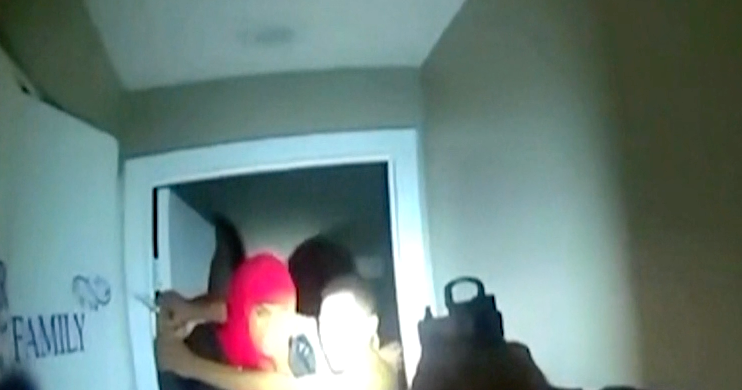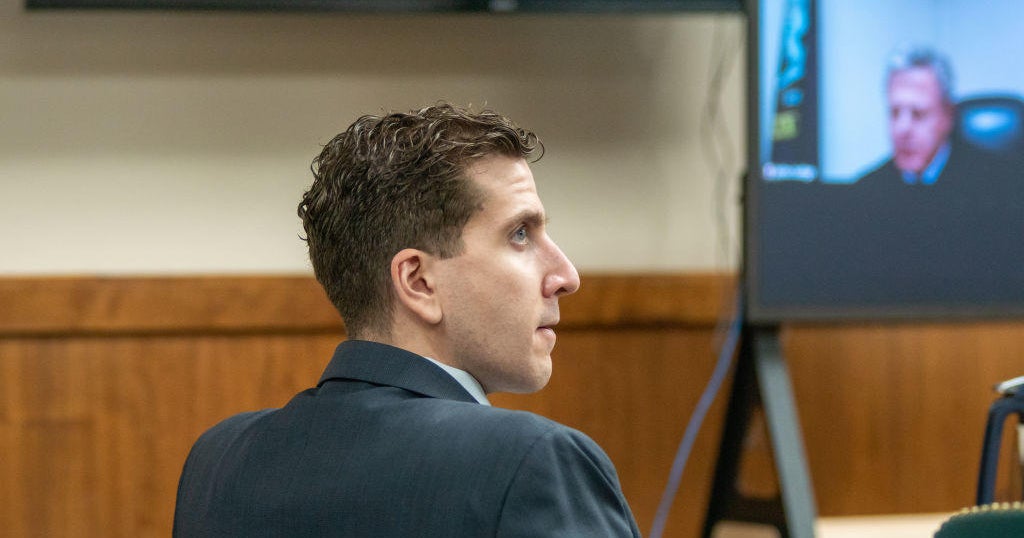Judge blocks immediate public release of bodycam video in Andrew Brown Jr. shooting, allows family access
A judge has ruled to allow full body camera footage to be disclosed to the family of Andrew Brown Jr., a Black man who was fatally shot by North Carolina sheriff's deputies last week as they attempted to serve drug-related search and arrest warrants at his home. However, the judge denied a petition by a media coalition to immediately release the video publicly.
Judge Jeffery Foster ordered the Pasquotank County Sheriff's office to disclose the full video to Brown's family and an attorney within 10 days, but said any further public release of the video will be delayed for 30-45 days. The judge said he will further evaluate the public release of the videos after an investigation is complete.
All facial and identifying features of the officers would be redacted in the video, the judge ruled.
The move comes after a prosecutor said in court that Brown's car made contact with deputies before they fired shots. Brown's family was in attendance during the hearing Wednesday at the Pasquotank County Courthouse in Elizabeth City.
The family has seen a short, redacted clip of the body camera video, but it has not previously been released to the public. Under North Carolina law, body camera videos are not public record and they require a court order before they are released. The shooting led to days of protests and calls for transparency from the community, the media and Brown's family.
Mike Tadych, a lawyer representing a coalition of media outlets, said at the hearing Wednesday the national media interest in the case highlights that there's a compelling public interest in releasing the video.
"The eyes of Elizabeth City, Pasquotank County, North Carolina, our nation and perhaps the world are on us today," Tadych said. "The [media] petitioners are not here to indict or vindicate law enforcement, and they're not here to indict or vindicate Mr. Brown. They are here in the interests of advancing transparency in the hopes of aiding the national conversation we find ourselves in about citizens' interactions with police."
After seeing the video on Monday, the family described the killing as an execution and said Brown had been trying to get away. One of the Brown family lawyers, Chantel Cherry-Lassiter, said the car was stationary when the shooting started.
District Attorney Andrew Womble, who will review law enforcement findings in the case, called the statement "patently false" and gave a different picture of events in court. He said Brown's car was "in a stationary position" when deputies approached the car and began shouting commands. Womble said the car was still stationary when a law enforcement officer grabbed the door handle of the car, and then was forced to release it when the car went in a reverse position.
The car then stopped and again reversed, and "as it backs up it makes contact" with law enforcement, Womble said. The car was again stationary with deputies positioned around the car when it began moving forward "in the direction of law enforcement and makes contact with law enforcement," Womble said. That's when shots were fired, he said.
Tadych said Womble's version of events "stands in stark contrast" to the family's account of what happened, which further points to the importance of the video release.
"In order to hold public officials accountable, one has to see what's going on," Tadych said.
Tadych pointed to the original press release sent out by the Minneapolis Police Department in May 2020, saying George Floyd had died of a medical emergency. The video in that case, he said, was crucial in determining the facts of the case that led to ex-officer Derek Chauvin's conviction on murder charges this month.
A lawyer for the Pasquotank County Sheriff's office also argued in favor of releasing the video to the family and the media. But Womble said releasing the video now could jeopardize the ongoing investigation, pose a possible risk to law enforcement involved and potentially taint a jury pool if charges are brought in the case. He asked a judge to release the full video immediately to the family but asked to pause public release of the video for 30 days in order to give him time to make a charging decision.
Womble said he would release the video at a press conference if he decides no charges are warranted, but would ask for the video to be released only at trial if charges are filed. He said public accountability is a compelling public interest in the case, but it's outweighed by his responsibility to conduct the orderly administration of justice.
"Let me review it, make my decision, and then everybody can Monday morning quarterback," Womble said.
Another lawyer for unnamed clients argued against any release of the video, saying the media is not an authorized party to view it under North Carolina statute.
Ben Crump, a civil rights attorney who represents Brown's family, released the results of an independent autopsy Tuesday that found Brown was shot five times, including a "kill shot" to the back of the head. In a statement released after the judge's ruling Wednesday, Crump and other family attorneys said they are "deeply disappointed" in the judge's ruling and vowed to continue keeping pressure on the agencies involved.
"In this modern civil rights crisis where we see Black people killed by the police everywhere we look, video evidence is the key to discerning the truth and getting well-deserved justice for victims of senseless murders," the statement said. "Just look at the murder of George Floyd – if the world had not seen that clear and disturbing footage, there might not have even been an ounce of accountability for those officers."
In a statement released Wednesday, the North Carolina State Bureau of Investigation, which is investigating Brown's death, said the agency defers to the local authorities and the court to determine whether the footage should be released.
"The SBI supports transparency to the greatest extent possible, as we think this serves the interests of the family, the local community, and North Carolina as a whole," the statement read.
Seven deputies have been placed on leave amid a state investigation. The FBI has also launched a civil rights investigation.





